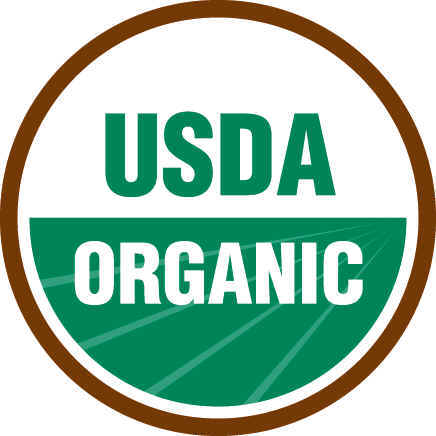You may be wondering why we (and other specialty roasters) do not offer Certified Organic coffees.
We’ve had a lot of people ask if and when we are going to sell Certified Organic coffees. In theory, certifications like Organic and Fair-Trade are extremely positive and support quality, sustainability, and a better livelihood for the farmers who produce coffee. In practice, however, these certifications are structured in a way that creates many barriers and hoops to jump through – making it extremely difficult (if not totally impossible) for producers and roasters to become eligible for certification status. Moreover, these certifications are not necessarily synonymous with better quality and flavor in the cup, or with much more money for the producers.
Here at Patriot we are committed to providing the best coffee and making sure the producers we source from are fairly compensated for their efforts. We eat all natural foods and organic produce, we shop locally and sustainably, we use re-usable grocery bags and walk to work, we support small businesses in our community, and some of us are vegetarians. This is why we thought it so very important to clarify some little-known information about certifications – specifically Certified Organic – coffees and to provide our customers with an explanation as to why we do not currently offer Certified Organic coffees.
Organic Certification
There is a lot of debate about whether organic coffee is any better for your health or overall flavor. No matter where you stand on either side of the debate, it is all subjective. We approach our decision to not market our coffees as Certified Organic from a purely (objective) economical and logistical standpoint.
How To Become Certified
It is important to note that each processing plant and each company that handles the coffee before it is packaged must complete its own organic system plan. Coffee is handled by producers, (sometimes) a special processing plant, exporters/millers, importers, and roasters all before it makes its way to the cafe and your cup. For every step of the journey that coffee takes, each processing plant needs to become certified organic (costing anywhere from $200-$1500 annually).
For a coffee producer to to become certified organic, coffee must be produced under U.S. standards established by the USDA’s National Organic Program. Requirements for this seal include no use of prohibited substances on the land for at least three years, including most (but not all) synthetic pesticides, herbicides, and fertilizers. Other certification requirements includes a plan that demonstrates crop rotation methods that prevent soil erosion. It is also up to the farmer to pay for the certification every year, which is not feasible for the majority of farmers who are growing on only 1 hectare of land.
Even after all the hard work that goes into getting certified, a lot can still go wrong. There are these cases where a farmer has paid for organic certification and then they are in danger of losing their entire crop (3-4 years worth of work) to diseases like coffee rust if they don’t spray. They have to decide whether to save the crop or save the certification. Because coffee is a luxury to us, it is easy to forget that it is a livelihood for the producers.
For a roaster to be certified organic, all organic coffee has to be roasted, de-stoned, and packaged separately from any non-organic coffee. This either requires two sets of equipment or an all organic lineup in their offerings. So, even if the farmers and producers do everything to create a certified organic coffee, if a roaster roasts the coffee using the same equipment or passes it through the same grinder as a non-organic coffee, they can no longer LEGALLY place a USDA Organic label on the bag of coffee.
Essentially, you can get a bag of coffee that meets organic standards relatively easily. It is much more difficult, however, to purchase a coffee that has maintained a certification all the way through the supply chain.
Certification and Quality
Simply put, a certification has little to do with the quality of coffee in your cup. The quality of a coffee is determined by many factors including (but not limited to) elevation, soil, harvest and processing technique, roasting process, the freshness of the coffee, coffee storage, the quality of the water, and the brewing method.
In some ways, some may see a negative correlation between certifications and quality. From an economic standpoint, farms and roasters who can afford to become Certified Organic are also generally operating at much higher scale. In our experience, factory farming and roasting are GENERALLY associated with a drop in quality. This is because they tend to focus on high quantity production rather than putting in the time and care required for high quality coffee. We talked about this in another article.
Keep in mind, though, that this is relatively subjective and perception of quality is dependent on the consumer.
Our Point of View
In many food categories (like fruits and veggies), organic certification can be truly meaningful. But in our experience, and from what we’ve learned from our time in the coffee industry, the best guarantee of a high quality, healthy cup is to stick to small-batch roasters and micro-lots, and to look for end-to-end handling that’s dedicated to quality first, rather than scale.
We source our coffees from small farms grown in high altitude regions (greatly reducing the need for pesticides) with densely populated forests and coffee crops grown in the shade of other trees (increasing biodiversity). We are meticulous about our bean sourcing and roasting and we partner with growers who are in quality coffee for the long haul – those who care for their land in order to provide for their families long-term.
So, while we do not pay for a USDA Organic Certification, we ensure that the coffee we source meets our highest quality and sustainability standards.



